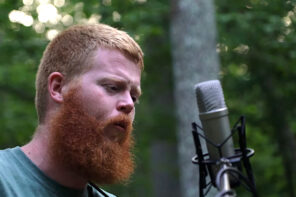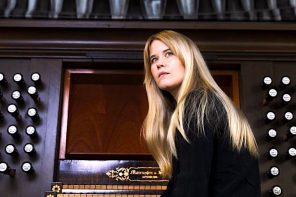This is the first in a series—part of an ongoing RD initiative focused on the changing face of American Christianities—that will take a stage-dive into the crowded field of religion and popular music. “The Accidental Worshiper” will consider the experiences of both artists and fans as they re-imagine their relationship to church, to religious community, and to the culture of the coliseum (or to the festival, or the coffeehouse, or…).
Here, Tripp Hudgins lays out the issues and asks some of the questions that will guide this exploration.
We welcome your stories.
– The Eds
_____________
I’m not quite sure when I first read about this kind of concert-going experience, but somewhere along the line some Christian fans started referring to rock concerts as if they were religious experiences, as if going to the coliseum to hear your favorite band was like going to a cathedral for worship.
In this analogy, concert-going becomes pilgrimage, and dance (and even drugs) become spiritual practice.
Indeed, as the author of Revelation writes, the smoke of the incense, with the prayers of the saints, rose before God from the hand of the angel…or something like that.
I don’t mean to be flip, but I do want to address this phenomenon with some humor. Religious people can be very protective of their rites—and rites, no matter how informal, embody theology.
To compare twirling Deadheads with genuflecting Catholics might seem odd, but for the sake of this exploration let’s hold them together.
It is clear that many in my generation are clamoring for a kind of religious experience that they simply do not find in Christian contexts, not even at Willow Creek, Saddleback, or Hillsong, though they sometimes come close.
Perhaps the most successful music program was at Mars Hill in Seattle. In her essay “Heaven, Hell, and Hipsters” from Ecclesial Practices ethnomusicologist Maren Haynes writes of their well-wrought strategy of borrowing from Seattle’s burgeoning music scene.
“Rather than trying to promote a foreign ritual mechanism,” Haynes says, “Mars Hill’s worship directors reinterpret the ritual environment of a concert, packaging it instead as a sacred experience.”
The fine line between concert and worship can be explored from either side of such a divide.
Of course, it is important to note that Mars Hills’ evangelical strategy was sleuthed out and, after various scandals, the church has been dismantled and its pastor sent to find work elsewhere. This raises questions about the sincerity of purpose that cannot be ignored.
I would argue that some of the best theology right now is being done by ethnomusicologists. Haynes’ feminist critique of Mars Hill is absolutely inspired and inspiring. Navigating the fine line reflects a certain theological or ethical stance as well.
It’s an ambiguous set of practices. One does not simply borrow. One reflects one’s theological or ethical convictions in the process.
In Secular Music and Sacred Theology, Christian Scharen writes of philosopher Charles Taylor’s notion of “the festive” and how this aspect of religious life has been swept away in American religious life. Protestant ritual sensibilities, according to Taylor, govern most religious expression in our culture—which leaves people to find alternative locales to experience “the festival.”
Scharen points us to rock concerts.
Is this what is at work? Is this why rock concerts “feel like church should feel?”
We can bring our affections to bear. We can listen with the heart and the mind simultaneously. Our desires are re-framed. Candor is offered. Devotion is a full-out activity with others led by people who have a confessional musical posture.
Joy. Grief. Shame. Jubilation. That it blends the so-called secular and sacred is what makes it typical of our time (and others, but that is not important here).
Perhaps this is what makes some of us “accidental worshipers.” Our iconoclastic religiosity has sent us clamoring for symbols and “experience” elsewhere. And when we cannot find it in church we go to the place where we are fed: the coliseum. The irony here is painful.
Something happens in these gatherings. Ritual theorists have various ways to try to explain it. One such concept, is “communitas.” Victor Turner is famous for popularizing it. Simply, it’s the feeling of togetherness people experience in a ritual performance.
But what makes it interesting is that it assumes a kind of structurelessness. There is an egalitarian sensibility here. To put it another way, when a performer is skilled at making people feel like they are in an intimate place with 65,000 of their best friends, one could call that feeling “communitas.”
Some Christians use the term “fellowship.” A lot of folk call it “authentic community.”
I think it’s important here to keep the language academic…just for a few seconds longer. The reason is simple: we bring our own theological sensibilities to any concert. We say it feels like church. Others, who don’t believe in Jesus, may also be experiencing a moment of some kind but would not equate it with “church” so to speak.
The religious jargon is important but so too are the particularities of the individual concert goers. Standing next to the person who is having church at the U2 concert is a person who is also deeply moved but would rather not call it church.
Are they experiencing the same thing? Yes and no.
But this is what makes these particular symbols we call concerts so powerful. In one of his more epic interviews, Dave Grohl put it this way,
“That’s one of the great things about music. You can sing a song to 85,000 people and they’ll sing it back for 85,000 different reasons.”





